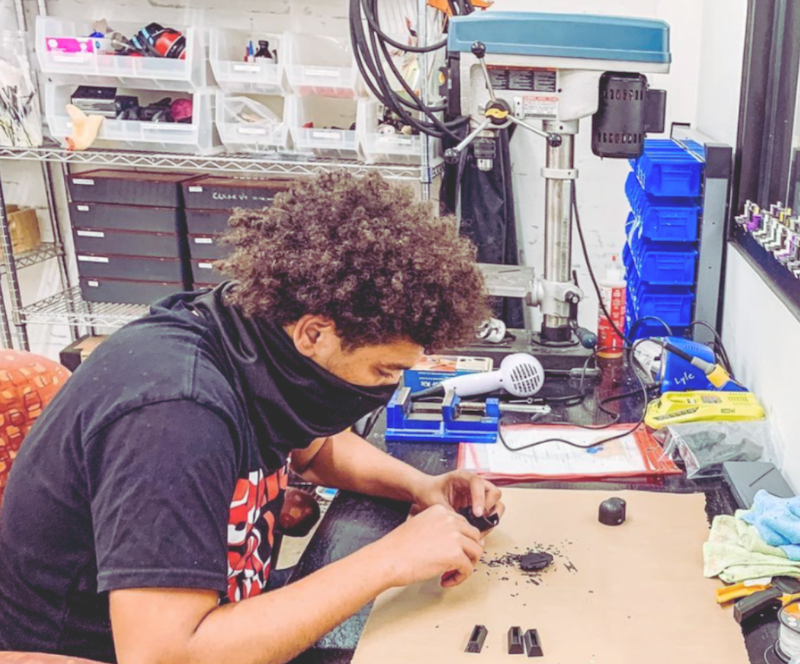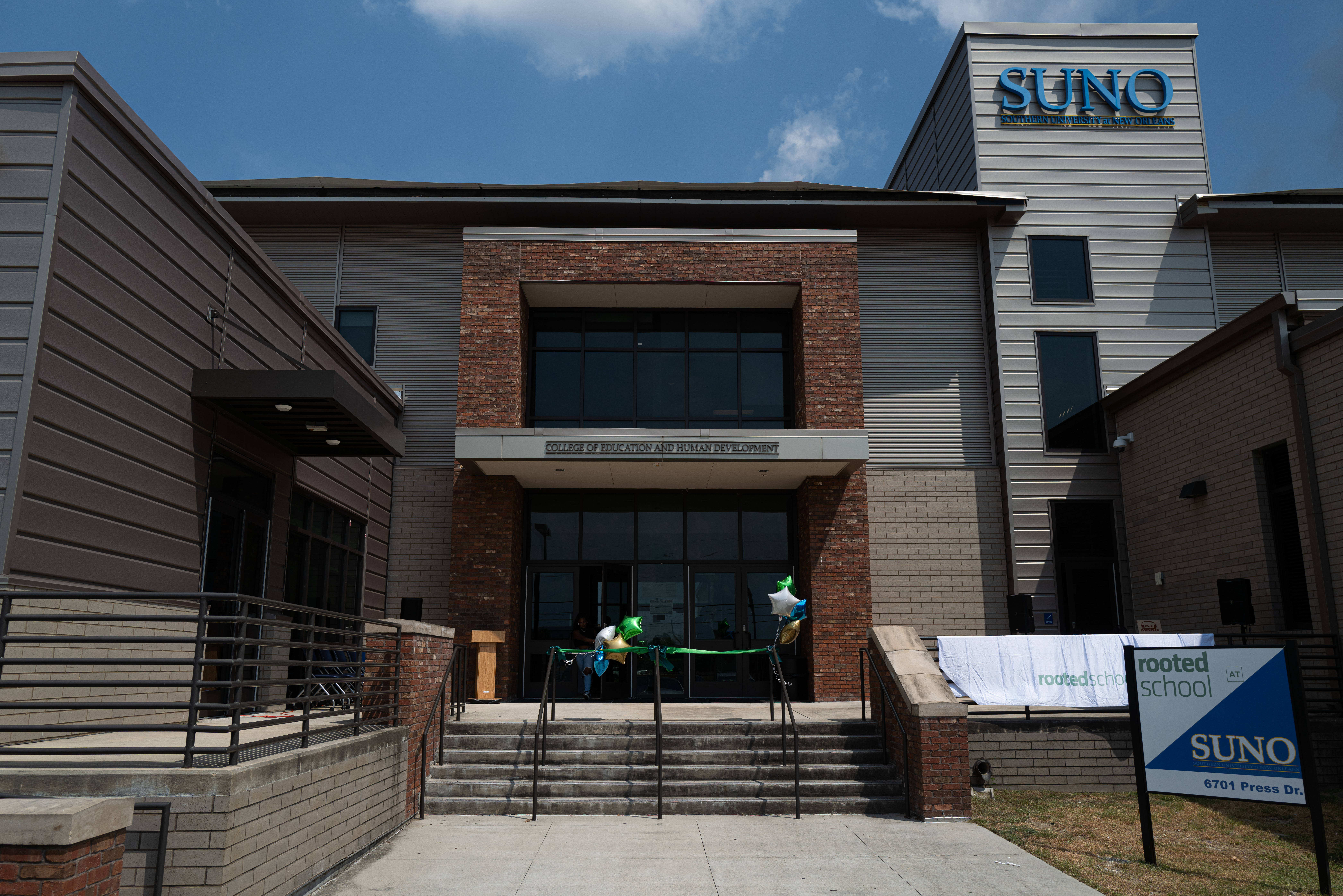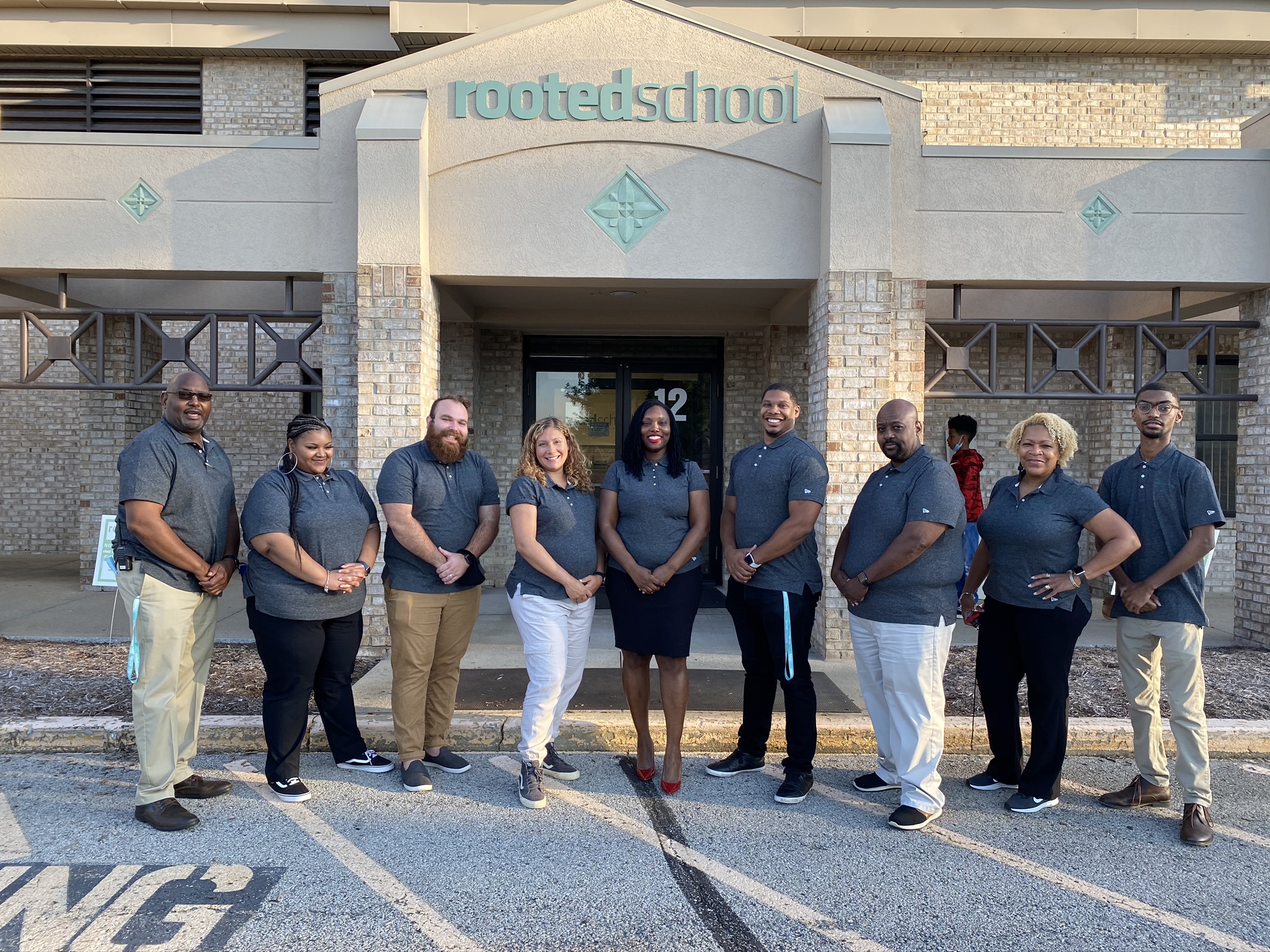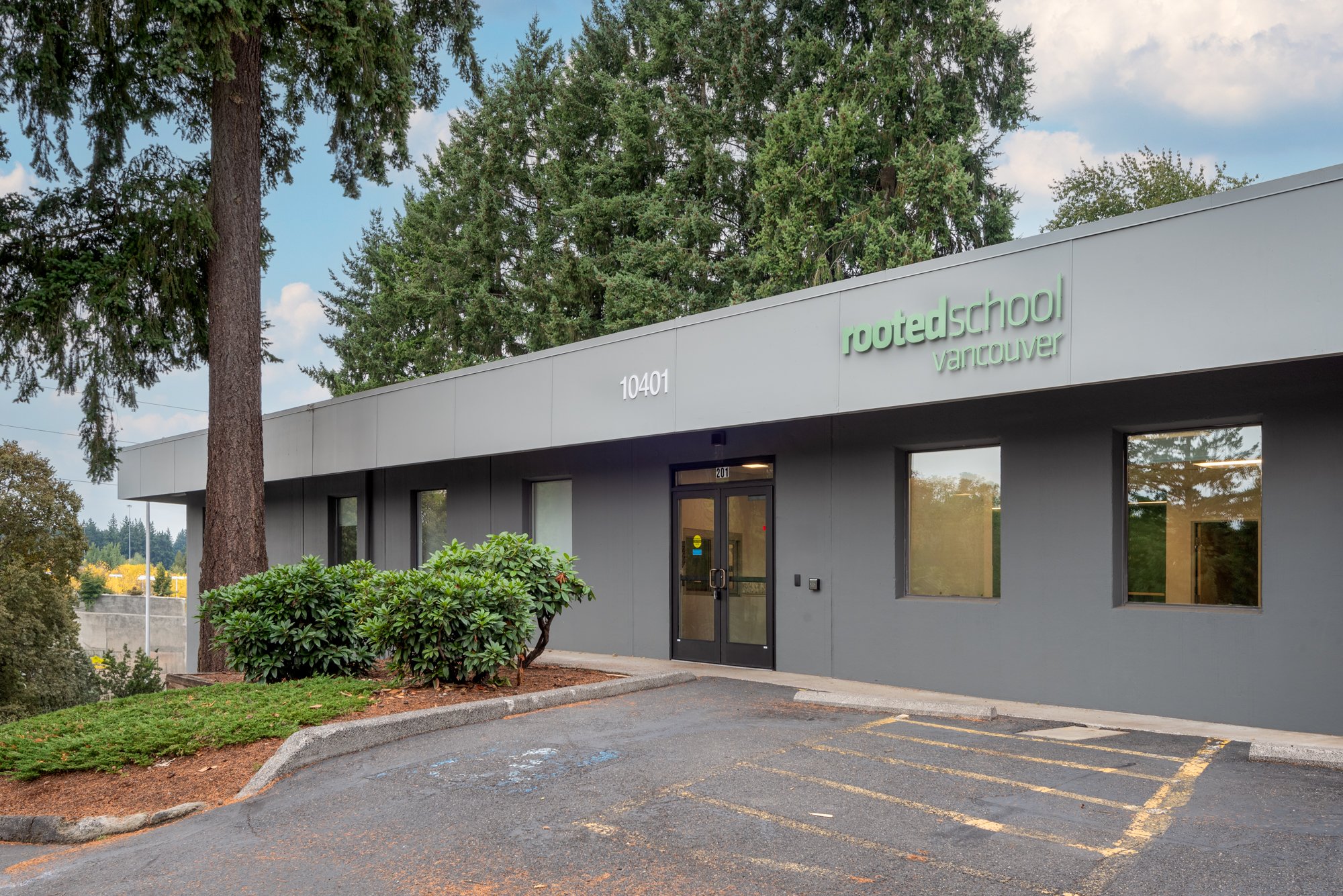The Green Balloon Fellowship: A New Vision for Regional Economic Growth
About The Green Balloon Fellowship —
What: A one-year, full-time job placement at a company making a living wage.
Why: Support local companies, and in turn, the local economy, by providing a pipeline of diverse, coachable, and eager talent who can thrive in rapidly changing industries.
How: Email us here to get involved.
Why We Developed the GBF:
A look at New Orleans
New Orleans’ companies are not growing as quickly as they could be and the wealth generated by the region is not accessible to everyone. Emerging research shows that rising inequality in talent preparation and sourcing could be obstructing regional economic growth potential.
There’s also another problem. Average household income at age 35 for children in Orleans Parish is $30,0001. Incomes vary across racial lines with average household incomes for whites at $56,000 compared to blacks’ $25,000. Children born into disadvantage are, by the time they start kindergarten, already at risk of dropping out of school, teen pregnancy, crime, and a lifetime of low-wage work. This is bad for all those born into historically neglected communities and bad for building a better future for all in New Orleans.
Program Overview
Like the US economy, New Orleans has shown growth–adding 6,500 jobs in 2019 and expecting to add 9,100 new jobs in 2020–though this is not leading to upward mobility for all in the region.3 A 2014 Harvard study of intergenerational mobility–or poor children growing up to become well off–showed New Orleans ranked 42nd out of 50 metro areas.4 One measure of an individual’s ability to rise up the economic ladder is their household income. A family’s income affects everything from housing affordability and food insecurity to community safety and wealth accumulation. Moreover, there is evidence that the greater stresses associated with lower incomes lead to worse outcomes that stay with the children of over-stressed parents over time.
According to MIT’s Living Wage Calculator, the living wage for two-parent households with one child in New Orleans is $49,850 before taxes. Median income for white households is $64,377 compared to $25,806 for African-American households in the city. With newly available, long-term data, researchers are now able to discover how some lifelong outcomes are rooted in economic growth inequality, and where children grow up based on their parents’ earnings.5
New Orleans could narrow this disparity, and the obstructions this places on its local economy if it created earlier interventions for individuals at the bottom of the economic ladder to rise up.
Early Findings
One possible intervention is providing opportunities for public school students to obtain industry-based credentials (IBCs) before they graduate high school to meet local employers’ talent needs. Like national trends, New Orleans is producing more jobs than it has talent to fill. Digital media related industries, alone, are projected to have 26% job growth through 2026 with no clear local talent pipeline to meet evolving talent needs. Although the typical entry level of education associated with the skill distribution in the digital media related industries and occupations is higher than the skill distribution across all occupations in the region, local employers have shown a willingness to hire employees who have the right skill set and experience regardless of their educational background.6 This creates an opportunity for K-12 institutions to create innovative alternatives for local youth to obtain skills that will better position them for family-sustaining jobs within their communities and beyond.
There is a real value and tangible ROI for grow-your-own talent development models yet the research on long-range economic impact is limited. By investing in a grow-your-own talent development model, New Orleans companies could experience gradual economic growth with a reduction in regional inequality within the region over time. Based on research and an ROI framework released by Corporate Voices for Working Families at CVC Caremark, Johns Hopkins Hospital, and Pacific Gas and Electric (PG&E), each enjoyed direct and sustained benefits from their investments. The main findings were:
1. Executives at these companies experienced a tangible ROI for their workforce readiness programs. For the three programs highlighted, the ROI ranged from a first-year loss of 10 percent to a net gain of at least 179 percent.
2. The monetized benefits are most often recognized in the form of higher employee retention rates. Companies also assigned significant value to non-monetizable rewards, including increased workforce diversity and greater community engagement.
3. Companies typically do not collect the data they need to assess the full value of their programs. Improvements on this front are needed to recognize the benefits these programs provide to the companies.
The employers above chose to invest in the skills of their future workforce, and their results–though still early and incomplete–show real promise. Most important, they are cultivating a new generation of talent, a pipeline of skilled and diverse employees who are finding new opportunities with companies committed to their professional growth and whose loyalty in return can have real impact on corporate profitability. New Orleans’ digital media related industries are positioned to be a national model for the long-range ROI if regional leaders invest in growing their own talent.
Solution: The Green Ballon Fellowship
To test what could be a regional and, potentially statewide solutions for addressing future workforce needs, Rooted School–New Orleans piloted the Green Balloon Fellowship (GBF) over the 2021 – 2023 school years. The GBF was a one-year experience that placed high-potential, under-represented youth ages 18 – 19 at entry-level jobs within local digital media-related companies.

Features of GBF (for students):
- Fellows receive a full-time salary with benefits that is competitive for their role and industry
- Fellows receive a case manager provided by the GBF team
- Post-hire is support provided
- Tuition subsidy (approximately $4K)
Features of GBF (for companies):
- At least 50% of a fellows salary may be funded by federal WIOA dollars for first year of employment
- A case manager is provided by Rooted/GBF to coach the fellow
- Post-hire support is provided
Criteria for GBF (for students):
- Age 18-19
- High school diploma
- Earn at least (4) Industry Based Credentials (IBC) in digital media related fields
- Phone and in-person interviews
- (3) Letters of Reference at school level
Sample Outcomes
Increased household income relative to their families’ over [5] years
Youth achieve a debt-to-income ratio of 36%
Our graduates achieve annual earnings of $50,000 before taxes (avg.)
Over 50% of students are retained at partner company
100% are on track to meet their financial goals

Program Footprint
The first of our charters, Rooted School New Orleans is now recognized as one of the most innovative public charter high schools in the country and offers dual-enrollment with SUNO.
The Green Ballon Fellowship currently exists at our New Orleans school, however, we are looking to expand it to the below Rooted School locations.

Indianapolis
Rooted School Indy partners with local organizations to provide the resources and opportunities our students need to succeed in their collegiate and professional careers.

Vancouver
Rooted School Vancouver opened Fall 2023 and made history as the first charter school in Southwest Washington.

North Las Vegas
With a target launch of Fall 2024, Rooted School Las Vegas will be among the first local charter schools providing area youth with personal pathways to financial freedom.
FAQs:
What is the purpose of the Green Balloon Fellowship(GBF)?
The GBF is New Orleans’ first direct from high school to tech employment fellowship aimed at inspiring a new vision for regional economic growth.
We want to support local companies, and in turn the local economy, by providing a pipeline of diverse, coachable, and eager talent who can thrive in rapidly changing industries.
How does the GBF work?
Seniors and recent graduates from Rooted School, as well as other high schools in the New Orleans region, will apply and be selected to join the fellowship this fall/winter. Fellows will receive training, coaching, and support before, and throughout, their fellowship experience by the GBF team at Rooted School.
Companies join as partners and hire 1-2 fellows per year to help solve their talent pipeline needs and become industry leaders in innovative workforce development.
Fellows gain access to living wage jobs and professional experience to launch their careers.
What commitments or investments does my company have to make to join the GBF?
Commit to hiring 1-2 fellows for a 90-day trial employment period. After the initial 90 days, you will have the option to employ the Fellow full time, or end the partnership.
Commit to paying at, or above, the living wage for New Orleans, which begins at $11.98/hour
Commit to participating in regular feedback and development meetings with fellows and GBF
coaches.
Is this program specific to New Orleans?
The GBF program currently has a footprint within our New Orleans school, however, we are looking to expand it. Reach out to us at greenballoonfellowship@rootedschool.org if you are interested in bringing the program to a city you’re in.
How do I get involved?
If you are interested in participating in the GBF, email us at greenballoonfellowship@rootedschool.org
About Rooted School
Rooted School’s vision is to rapidly close America’s inequality gap by providing its high school graduates with a college acceptance in one hand, and a job in the other.
Rooted School began in 2014 as a 15 student pilot in New Orleans. Inspired by the growth of tech based living-wage jobs and informed by his experiences teaching in Central City, LA, founder Jonathan Johnson knew more could be done to empower access to the economic ladder by innovating on the traditional educational model.
Six years later and with four schools founded in opportunity communities across the nation, Rooted School is widely recognized as one of the most innovative public school models in the U.S. Core to its educational model and belief is that youth are a vastly underutilized talent source in our communities.
With the right training, increased expectations, and access to opportunities, the U.S. can leverage talented teenagers’ talents to meet its increasingly changing workforce demands.
